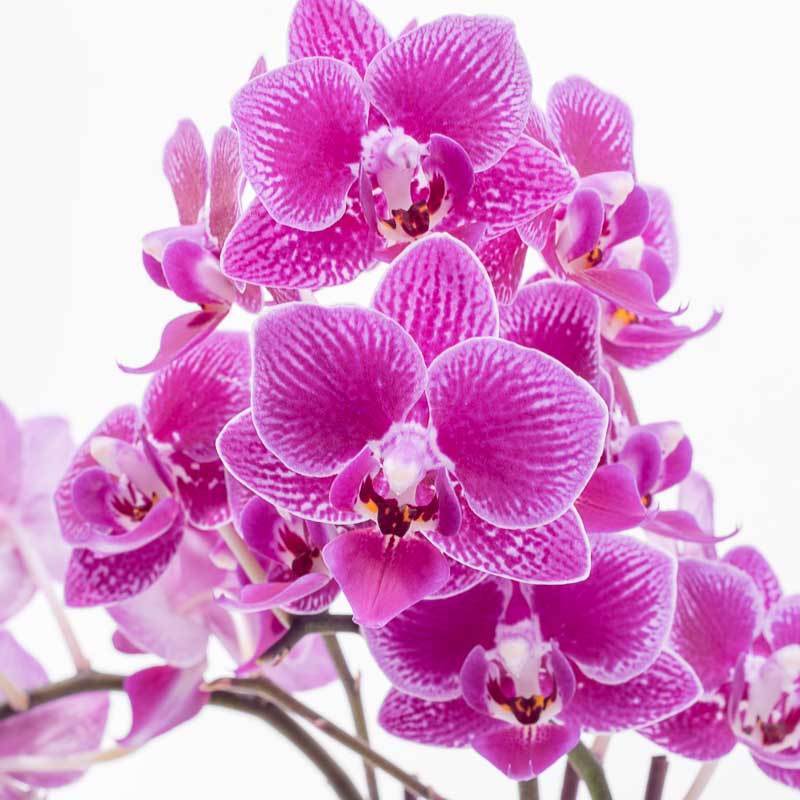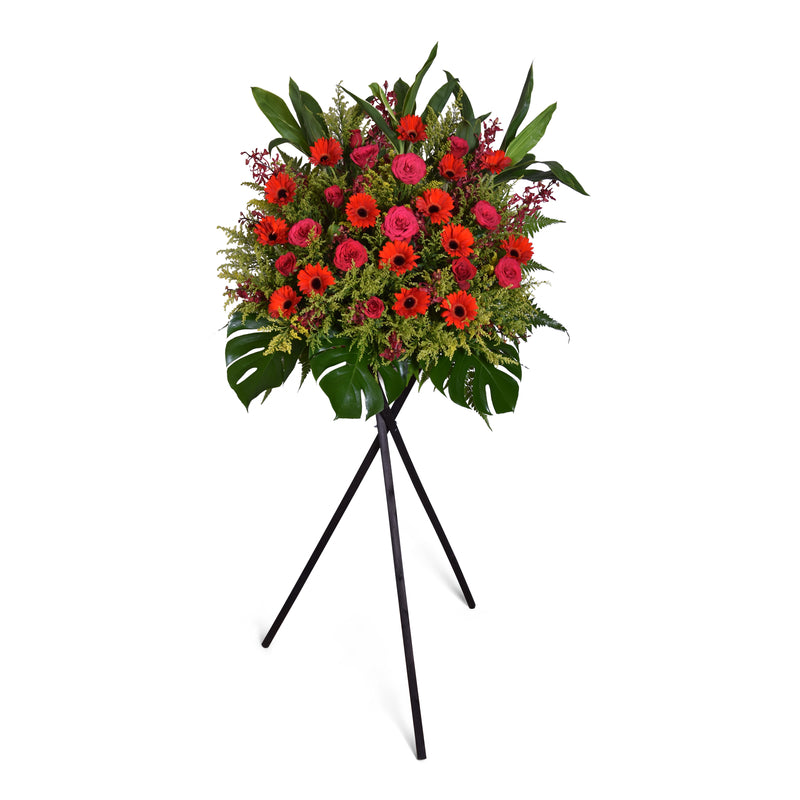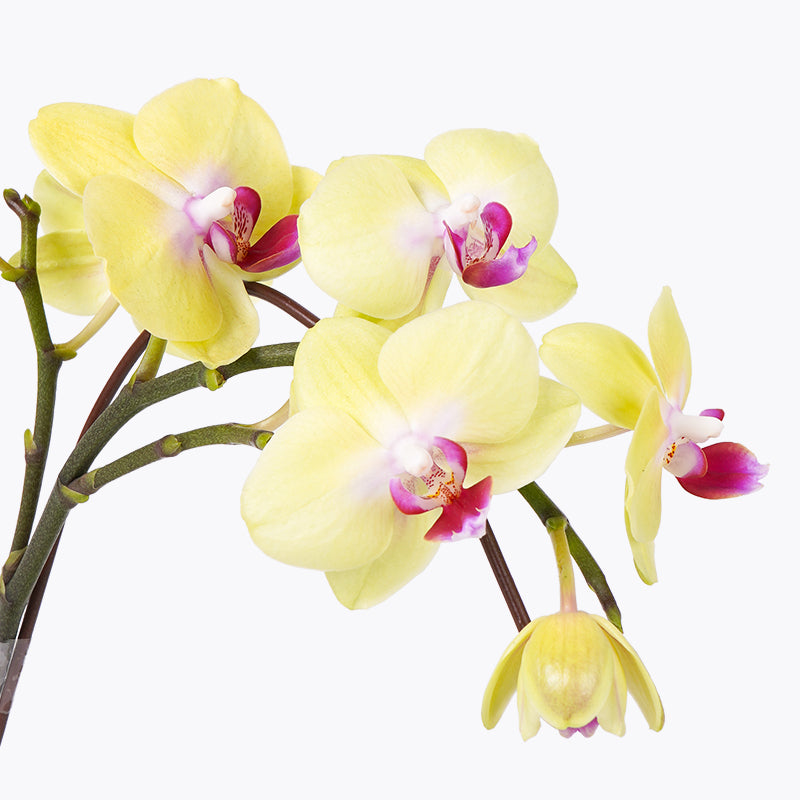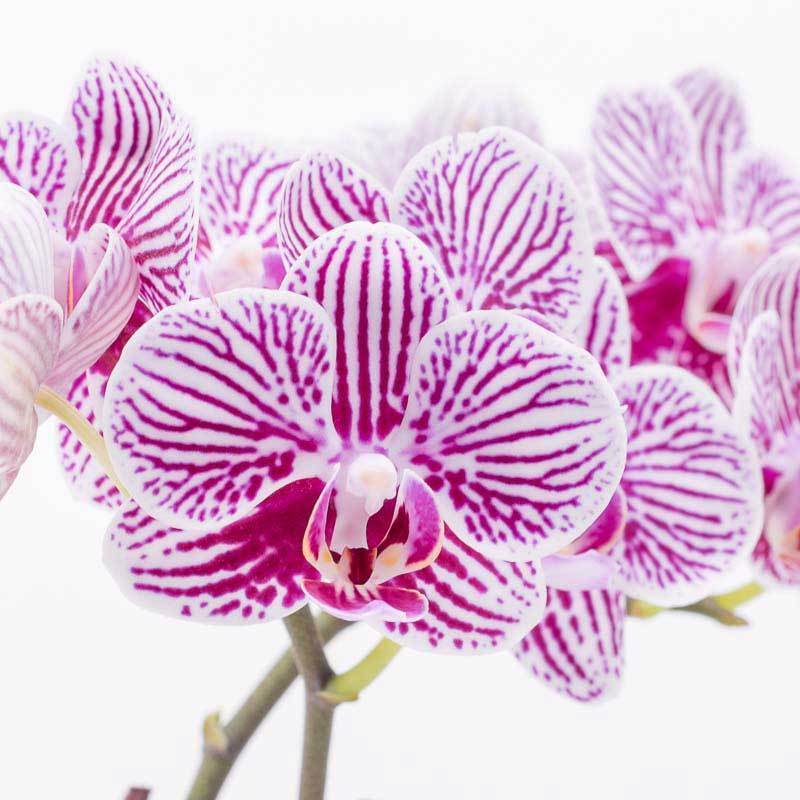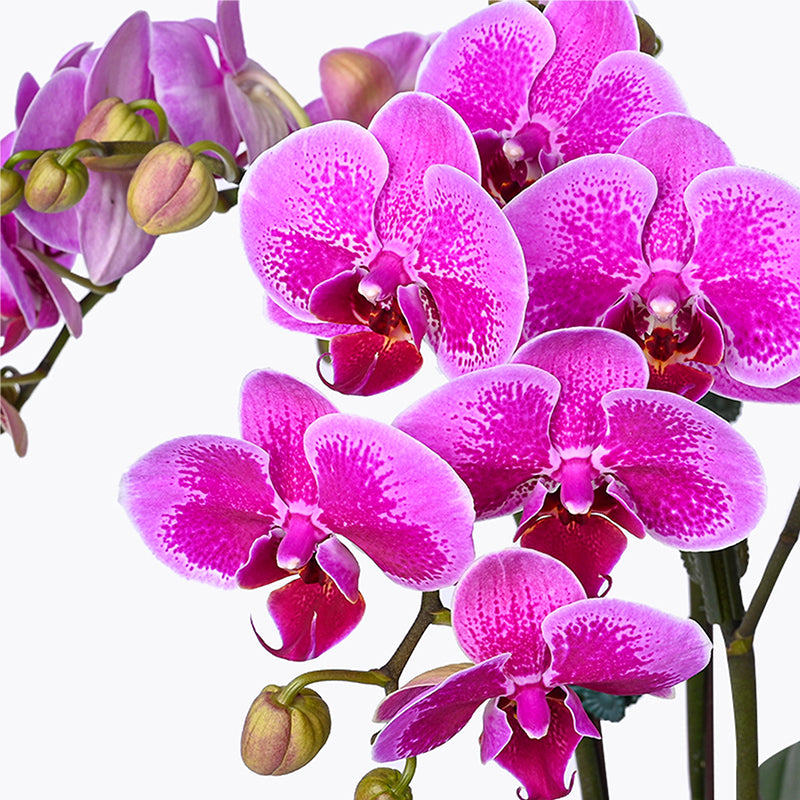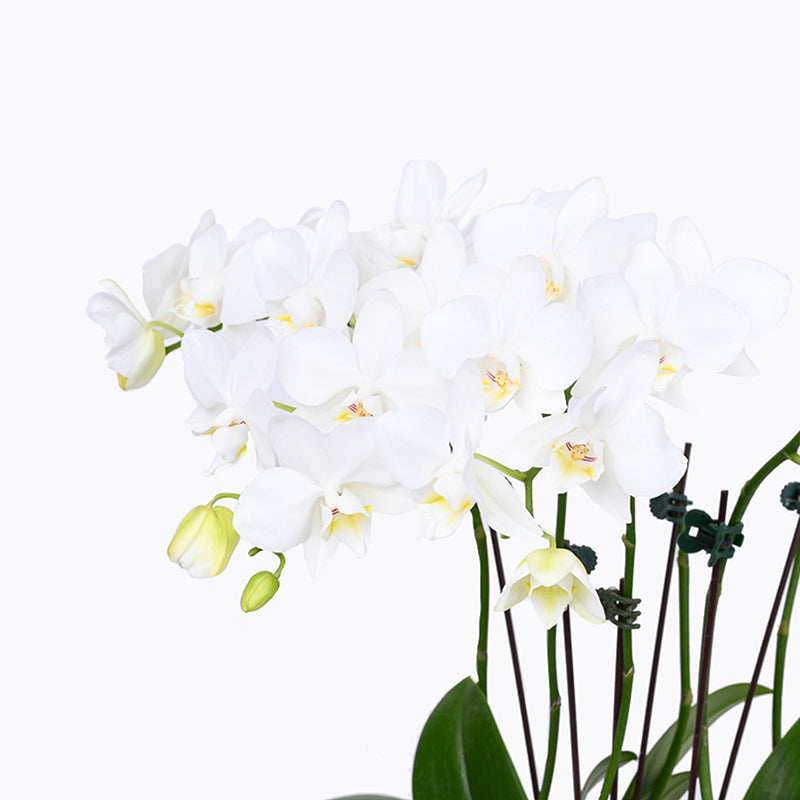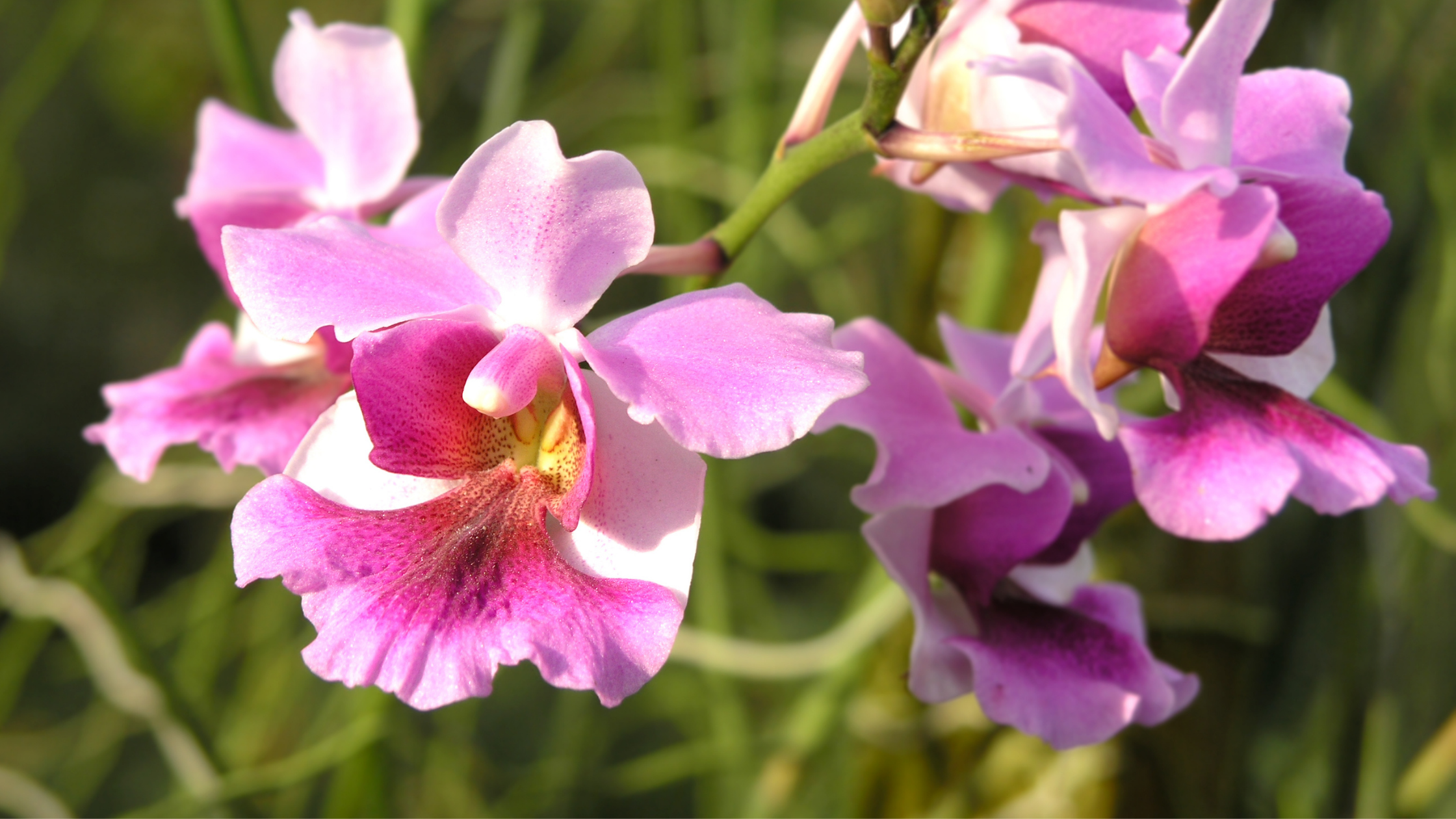Ah, the enchanting world of orchids, where beauty and grace intertwine to create a mesmerizing sight. These exotic wonders, with their delicate allure, demand a certain finesse in their care. Fear not, our fellow plant enthusiasts, for in this guide, we shall unravel the secrets to nurturing these captivating botanical treasures. Whether you're a seasoned green thumb or a curious beginner, join us as we delve into the essential tips and techniques for orchestrating the perfect care routine for your orchids. Prepare to witness their splendour in full bloom!
Orchid Care for Beginners
As a budding orchid enthusiast (pun intended), it's crucial to kickstart your green thumb journey with orchid species that won't have you tearing your hair out in frustration. Let's face it, orchids can be a bit diva-ish, but fear not! Enter the Phalaenopsis orchids, affectionately known as moth orchids. These delightful darlings are like the cool kids of the orchid world—they're resilient, adaptable, and have a knack for surviving even the most unintentional acts of neglect. So, here's the scoop on how to keep these beauties happy and thriving:
Understand the orchid's natural habitat and requirements
Before diving into the mystical world of orchid care, take a moment to explore the native environment your precious orchid species hails from. We're not talking about swanky vacations, mind you, but rather understanding the ideal conditions that make orchids flourish. Picture this: moderate temperatures, high humidity, and light that's as filtered as an Instagram influencer's selfies. Yes, orchids adore these atmospheric elements, and it's time to channel your inner weatherman and recreate them right at home.
Provide adequate lighting for orchids
Find a perfect little spot for your precious orchids, where they can bask in bright, indirect light. Direct sunlight, like a magnifying glass on an ant, can scorch those delicate leaves. So, let's keep it a secret affair between your orchids and the sunlight. Oh, and during the winter months when daylight decides to go on vacation, your orchids might appreciate some extra love from artificial lighting. It's like their very own tropical island getaway, where the sun never sets.
Temperature and humidity considerations
Maintain temperatures between 65-75°F (18-24°C) during the day and slightly cooler at night because, well, orchids are not fans of hot flashes or chilly evenings. They're like the Goldilocks of plants; they want it just right. Oh, and don't forget their high humidity preferences. Orchids are like the divas of the plant world, always craving that perfectly moisturized air. You can pamper them with a humidifier, indulge them with a humidity tray, or even give them a little spritz now and then. Just like a spa day for your favourite green companions.
Select the appropriate potting medium for orchids
Now, if you want to keep these finicky beauties happy, you've got to provide them with the perfect potting medium. And what's that, you ask? Well, it's a magical concoction that lets those orchid roots breathe and mingle with the air. The secret formula involves a delightful mix of bark, sphagnum moss, and perlite, which acts as the VIP lounge for your orchid species of choice.
Basic fertilization needs for orchids
To ensure their radiant blooms, you'll want to treat them with care. Start by grabbing a balanced orchid fertilizer and, for goodness' sake, follow the recommended dosage instructions. We don't want to overdo it and end up with overfed orchids on our hands.
Now, when it comes to fertilizing these beauties, timing is everything. Think of it like giving your orchids a gourmet meal – you want to serve it up during their growing season, which conveniently falls in spring and summer. But hey, just like us, even orchids need a break. So when they hit their dormant period, it's time to reduce or even halt the fertilization frenzy. Let those little guys rest and recharge for the next blooming extravaganza.
Monitoring and preventing common orchid pests and diseases
Keep an eagle eye on your orchids, our dear green thumbs, for any sneaky critters trying to crash their glamorous party. Those pesky aphids, mealybugs, and spider mites can't resist the allure of your precious blooms. But fear not! Arm yourself with the right insecticides or unleash the power of nature's remedies to send those uninvited guests packing. Remember, prevention is better than cure, so make sure your orchids enjoy a breezy atmosphere and stay squeaky clean to fend off fungal and bacterial diseases. It's all about creating the perfect orchid haven, where pests and diseases are shown the door with a firm yet gentle touch.
How to Care for Orchids Indoors
- Choose east or west-facing windows for bright, indirect light or use artificial grow lights.
- Maintain a consistent temperature range of 65-75°F (18-24°C) during the day and slightly cooler at night.
- Monitor humidity levels with a hygrometer and aim for 40-60% relative humidity.
- Increase humidity levels with misting or a humidifier if needed.
- Use fluorescent or LED grow lights placed 6-12 inches above the plants to supplement lighting.
- Adjust the duration of lighting to mimic natural daylight patterns.
- Regularly inspect the potting medium and repot orchids every 1-2 years or when the medium decomposes.
- Use clean pots with drainage holes and remove old potting material before repotting.
- Ensure good airflow and ventilation to prevent mold and fungal diseases.
- Position fans or use a handheld fan to promote air circulation.
- Remove dead flowers and yellowing leaves regularly.
- Prune back overgrown or damaged roots during repotting.
- Monitor for signs of stress or disease and take appropriate action promptly.
How to Water Orchids
Watering orchids can be quite a challenge, our fellow plant enthusiasts, because let's face it, overwatering is like a rite of passage for us. But fear not, dear readers in sunny Singapore, for we are here to guide you through this treacherous territory with a few nifty tips. Brace yourselves!
Understand the water needs of orchids
Here's a crucial tip for taking care of these delicate beauties: most orchids aren't the biggest fans of being drowned in water all the time. Nope, they prefer a bit of drying-out period between their watering sessions. Now, how often you water these babies depends on a few things: the type of orchid you're dealing with, the potting medium you've chosen, and those sneaky environmental conditions. Trust me, they're like picky celebrities, those orchids. But fear not! With a little understanding, you'll have them thriving in no time.
Select the right water source for orchids
When it comes to hydrating your orchids, you've got options. Your best bets are distilled water, rainwater, or tap water that has been left out overnight to let those pesky chlorine and other chemicals take a hike. We wouldn't want our precious orchids throwing a tantrum, would we? Oh, and here's a pro tip: avoid using water that's harder than trying to fold a fitted sheet or packed with more minerals than a geological museum. So, let's keep it chill and give our orchids the refreshing hydration they deserve.
Watering frequency and amount for different orchid species
Here's a golden nugget of wisdom: never water your orchids on a strict schedule like they're robots demanding hydration at the same time every day. No, no, no! Instead, treat each magnificent plant as the unique individual it is, and give it a personalized assessment. How, you ask? Well, simply touch the potting medium and gauge its dryness. When it feels dry to the touch, that's your cue to water your orchid. But don't just do it mindlessly; embrace your inner Sherlock Holmes and investigate each plant's specific watering needs.
Proper watering techniques for potted orchids
When it comes to watering your precious orchids, you gotta get it right, or you'll end up with some sad, soggy roots. Here's the deal: give your orchid a good, thorough soak until you see water streaming out of those handy drainage holes at the bottom of the pot. Oh, and please, for the love of all things green, don't let your orchid sit in standing water! Trust me, it's like a spa retreat for root rot, and that's not a vacation you want your orchid to take.
So, after your generous watering session, let the potting medium have a breather and allow it to dry out a bit before you reach for that watering can again. We're going for a little moisture control here, folks. Don't drown 'em, but don't let 'em go completely bone dry either. Strike that perfect balance, and you'll have happy, thriving orchids to show off in no time.
Significance of drainage and avoiding water stagnation
Make sure those pots have enough holes to let all that extra water out. We don't want our orchids drowning, do we? It's like trying to breathe underwater without a snorkel – not a pretty sight! So, if you find yourself stuck with a pot that lacks proper drainage, do yourself and your orchid a favor and give it a new home in a pot that knows how to let things flow. Trust me, your orchid will thank you with its radiant blooms!
Watering considerations for mounted orchids
Mounted orchids, my friends, are a unique bunch that demand a little extra attention when it comes to watering. You see, these elegant beings don't have the luxury of a potting medium to hold on to precious moisture. So, what does that mean for you, the devoted orchid caretaker? Well, it means you'll need to step up your game and get ready for some frequent watering sessions.
Show these orchids some love by misting or dunking them in water, but don't forget to let them drain completely afterward. After all, even the most sophisticated orchids need a good soak and a chance to dry off, just like the rest of us on a hot and humid day in Singapore.
Additional tips for watering orchids during different seasons
In the sweltering heat of Singapore's warmer months, orchids come alive with gusto, practically demanding more hydration than a marathon runner. So, you might find yourself playing the role of a diligent water bearer, supplying them with more frequent watering sessions. However, when the cooler months roll around, and the orchids decide to hit the snooze button on their growth, you'll need to be a bit more cautious. Ease up on the watering routine, but don't let those poor plants dry up completely. Remember, even orchids need a break from thirst now and then!
Caring for orchids can be a truly rewarding journey, but it's not for the faint of heart! Patience, attentiveness, and a willingness to adapt are the key ingredients to successfully nurture these delicate beauties. Understanding the specific needs of your orchids and providing them with the perfect environment, lighting, water, and nutrition is crucial.
Once you've cracked the code, you'll be rewarded with mesmerizing blooms that will turn your home into a tropical paradise. So roll up your sleeves, channel your inner botanist, and embark on this magical journey of orchid growing.
Looking to get your hands on some stunning orchids? Look no further than Flower Chimp, where we offer you nothing but the absolute best! Take a leisurely stroll through our magnificent collection and choose the orchid that speaks to you. We've got quite the selection, so you're sure to find your perfect match. Trust us, we've got this orchid game on lock! So why wait? Dive into our orchid wonderland and let your imagination run wild with the possibilities. Your dream orchid awaits, right here at Flower Chimp!
Same Day Flower Delivery
Best Rated Florist In Singapore
4.8/5.0 Based On 5,310 Reviews
![whatsapp icon]() Click here to Whatsapp us! (MON-SUN, 9am-6pm)
Click here to Whatsapp us! (MON-SUN, 9am-6pm)











